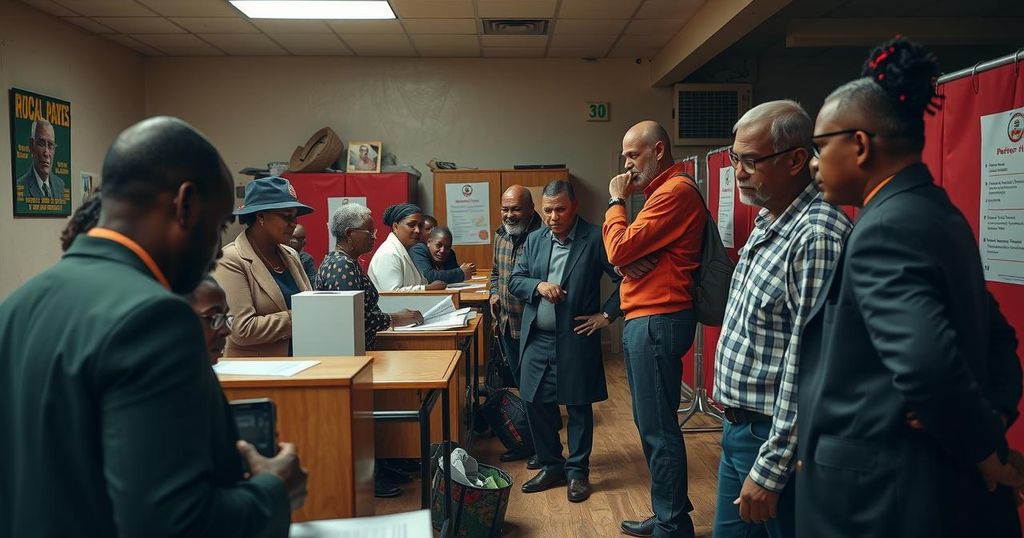Namibia Extends Election Voting Amid Complaints of Electoral Fraud

Namibia has extended the voting period for presidential and parliamentary elections due to technical and logistical challenges, prompting opposition claims of fraud. The ruling SWAPO party, facing discontent among voters over economic inequality, may contend with a shifting political landscape as the youthful electorate seeks change. Approximately 1.4 million individuals are registered to vote, and Richard’s logistical issues are presenting significant challenges to the electoral process.
Namibia’s electoral authority has decided to extend the voting period for the presidential and parliamentary elections due to significant technical difficulties and shortages of ballot papers. Originally scheduled to conclude on Wednesday, the voting will now continue until Saturday night. The extension has sparked concerns and allegations of electoral fraud from the main opposition party, the Independent Patriots for Change, which asserts that the decision is illegal. Many voters faced challenges, as polling stations struggled with logistical issues, leaving numerous registered voters unable to cast their ballots.
This election occurs amidst broader regional tensions, with Mozambique experiencing violent protests following disputed election results. The ruling SWAPO party, which has been in power since Namibia’s independence in 1990, is leading the contest with Netumbo Nandi-Ndaitwah as its presidential candidate, who could make history as Namibia’s first female president if elected. Yet, the youthful population’s frustration over economic inequality and limited opportunities poses a formidable challenge for the ruling party. Amid claims of logistical mishaps, there is considerable skepticism regarding the electoral process, with some voters expressing their disappointment over the voting delays.
Approximately 1.4 million individuals are eligible to vote in this election, which will not only determine the presidency but also the composition of the Namibian parliament for the next five years. Despite being identified as one of the most stable democracies in Africa, the recent frustrations suggest a shift in voter sentiment, particularly as historical grievances over colonial and apartheid-era injustices remain fresh in the minds of many citizens. As the country navigates these complex challenges, the outcome of this election will be closely observed both domestically and internationally.
Namibia is a former German colony that became a South African territory post-World War I. After a prolonged struggle for independence, the SWAPO party, which has played a pivotal role in this struggle, has ruled since independence in 1990. Historically, Namibian elections have been regarded as credible; however, growing economic disparities have led to increased discontent among the population, especially the youth. This is the first election following widespread disappointment in regional governance, as evidenced by the recent unrest in Mozambique. The current electoral crisis underscores the ongoing tensions between established political structures and the electorate’s evolving expectations, particularly in the context of the country’s socio-economic challenges.
In summary, Namibia’s decision to extend voting amid technical difficulties and ballot shortages has incited allegations of electoral fraud from the opposition, raising concerns over the integrity of the electoral process. With a significant portion of the electorate still waiting to vote and rampant skepticism regarding the electoral management, this election’s outcome may significantly influence Namibia’s political landscape. The ruling party’s long-standing governance faces increasing pressure from a demographic eager for change, potentially marking a transformative moment in Namibia’s democratic journey.
Original Source: abcnews.go.com







